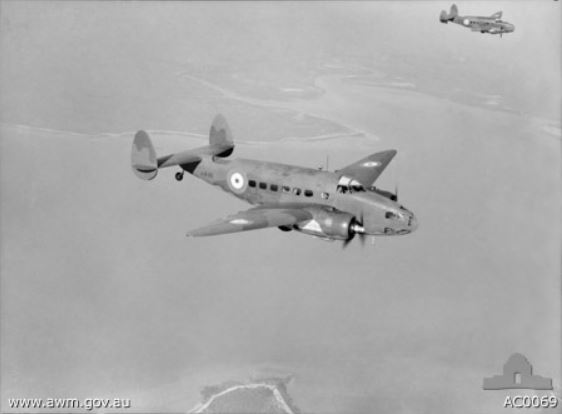Lockheed Ventura
From Our Contribution
 | |
| History | |
|---|---|
| Type | twin engine |
| Role | Patrol bomber |
| Designer | Lockheed |
| Manufacturer | Lockheed, a subsidiary - Vega |
| Produced | 1941 |
| Number built | 3,028 |
| Primary users | US Navy, US Air Force, RAF, RAAF |
Remarks
Design was based on the Lockheed Hudson, although better armed and able to carry a heavier bombload. No. 464 Squadron RAAF in Bomber Command used the Ventura as a daylight bomber from 6 Dec 1941 - 10 Jul 1943. However, early on it was found to have deficiencies as a Medium bomber and was replaced by the Mosquito which suffered much fewer casualties. Passed to Coastal Command, No. 459 Squadron RAAF used Venturas for anti shipping patrols in the Aegean from December 1943 until July 1944.
No.13 Squadron RAAF was equipped with Ventura aircraft in April 1943 and began maritime patrols of the NSW coast. In June 1944 the squadron and its Venturas moved to Cooktown, Queensland, and to Gove in the Northern Territory in August 1944. From here they conducted anti-submarine patrols and bombing raids in the Dutch East Indies and Timor. On 12 Jun 1945 the squadron began to move to Morotai, and then to Labuan, with the first aircraft arriving on 14 Aug 1945, and were operational two days later. By the 28th they had been relegated to dropping pamphlets, and soon after were converted to be used to carry back to Australia surplus Army personnel and after the Japanese surrender, ex-POWs.
General characteristics
- Crew:Five
- Length: 15.77 m
- Wingspan: 19.96 m
- Height: 3.37 m
- Empty weight: 7,824 kg
- Max takeoff weight: 11,804 kg
- Powerplant: Pratt & Whitney Double Wasp S1A4-G, 1,850 hp
- Maximum speed: 502 km/h at 4,725 m
- Range: 1,490 km
- Service ceiling: 7,620 m
- Armament
- Guns: 8 x 0.303 in machine guns
- Bombs: 1,361 kg
Ground crew
No. 5 Aircraft Depot RAAF
- Alfred Ensor Hand 7 Apr - 23 Jul 1942
- Francis Neal McGurk 14 Sep - 28 Feb 1944